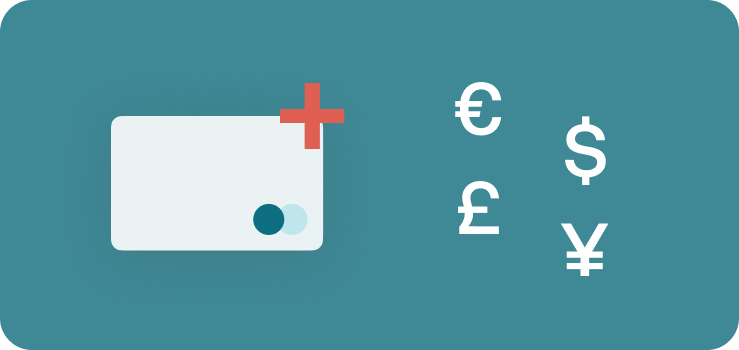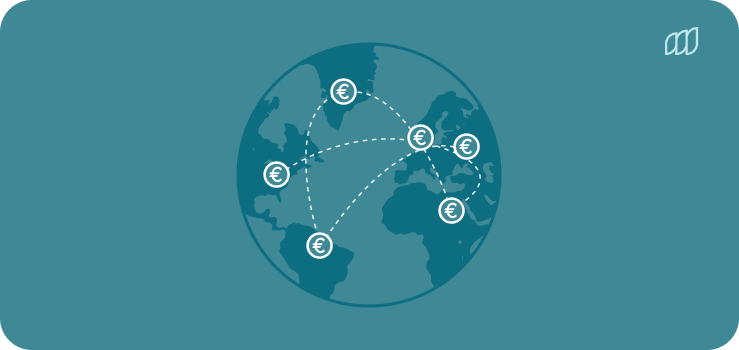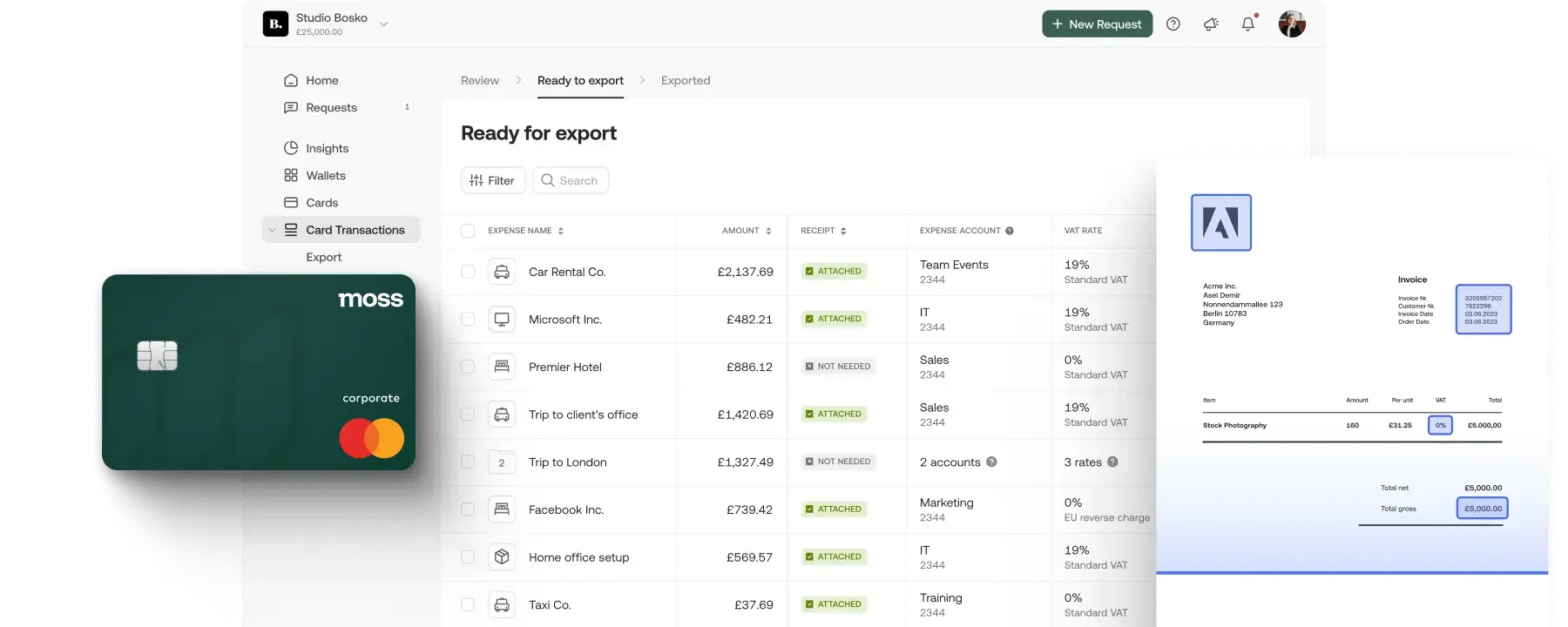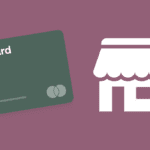Most of us have run into the dreaded foreign transaction fee when using a card for purchases abroad. As a result, there’s huge interest in ways to save money on online purchases, business trips and private getaways overseas. In this article we’ll explain why it’s often best to use a cashless payment option, and how to avoid a surcharge when you encounter an ATM in a foreign country.
What are foreign transaction fees?

A foreign transaction fee, sometimes also called FX fee or FX charge, is a common surcharge on your card. You receive an FX fee when paying with your card in a foreign country or when buying online in a foreign currency. The fee usually occurs as an extra cost when the payment has to be made via a foreign bank.
Many credit card issuers apply this fee, which is normally between one and three per cent of the transaction total. However this does vary depending on the network and terms and conditions of the financial institution. A coffee here, a train ticket there: If you’re not careful, your trip or online shopping can easily become much more expensive than expected.
For example, if you spend £1,000, you can easily end up paying an additional £30 in fees. That’s a lot to pay as a customer, but these fees can quickly add up as a business too. Transaction fees can amount to the point where budgets need to be adjusted and plans need to be changed to avoid extra costs. It’s important to remember that every bank can determine its own fees, so you should check beforehand how much you’ll end up paying with a card in different circumstances.
The purpose of the foreign transaction fee
The foreign transaction fee comprises two parts which make up the total charge. The first is the currency conversion fee or network fee, which is charged by the respective credit card network, such as Mastercard or Visa. For these two networks, the fee is one percent on every transaction. This covers the various costs and, of course, generates a bit of income for the network with every purchase or paid service.
On top of that, every bank can issue its own fee. This usually adds another two percent. However, a few banks waive both bank and network fees, so their clients do not have to pay a surcharge. It is worth noting that only one total foreign transaction fee per purchase pops up on the card statement. Bank and network charges are not mentioned separately.
How to calculate foreign transaction fees
A foreign transaction fee is calculated by simply multiplying the predetermined percentage stated by the bank by the price of the purchase. That means, if an employee buys something abroad for £100 using a corporate card, the bank statement will show £3 as foreign transaction fees.
It is important to remember that this is the fee after possible currency conversion fees have been applied. These fees are separate from one another and should be considered individually.
Avoid foreign transaction fees and save money

Exchange rates are also important when pushing a purchase via a foreign bank. Every amount has to be converted into pounds according to the current exchange rate. This can differ significantly from week to week depending on market movements. When purchasing products for a business trip or work-related services in a foreign country, merchants may ask if the buyer would like to be charged in pounds. This process is called dynamic currency conversion.
While this may sound convenient, it can end up being extremely costly. Dynamic currency conversion is often connected to very unfavourable exchange rates that are intended to maximise merchant profit. Card users are normally better off choosing the local currency. This way, the bank uses the current exchange rates, which are typically much lower. Additionally, many travel cards that advertise no foreign transaction fees only waive fees when payments are made in the local currency. On a business trip to Spain, for example, paying in pounds instead of euros can rack up additional costs, even with no-fee travel cards.
Here are our summarised tips that can prevent your foreign business trip from becoming more expensive than necessary:
- Read the bank’s terms and conditions thoroughly to detect fees
- Compare providers and choose between card-issuing banks with low or no foreign transaction fees
- Keep the exchange rates in mind, including the ones that might occur when paying in domestic currency
- Check for rewards programs and cash back options that might balance out the fee
- Consider possible ATM fees when withdrawing money—sometimes it can be cheaper to simply pay with a card or withdraw a higher amount
- Cashless payment is a lot safer than carrying money around as it might be stolen or lost
- Avoid out-of-network cash machines and use the card issuer’s worldwide partners instead
- Ask the bank to sell foreign currency at a fair price prior to the trip
- Exchange money before departure to avoid international exchange fees
For business owners, it can be useful to check if your preferred bank has foreign partners in the countries that team members visit repeatedly. You may be able to save a few pounds in the long run if your employees avoid out-of-network cash machines and the additional costs that come with them.
Tip: When using a card with one percent foreign transaction fees and one percent rewards, there’s no need for a specific travel card as users break even. However, to ensure liquidity, it’s crucial to communicate with the bank if you’re taking a business trip abroad. Some card issuers might flag suspicious activity from other countries and freeze an account if they cannot verify that an eligible user is in that area. It’s usually very easy to let banks know, and it could save you a lot of hassle in case something does go wrong.
Foreign transaction fees do not count towards rewards

Some people might now be thinking: ‘At least I’m adding a few extra pounds to my cash back or rewards program, right?’
Unfortunately, that’s not the case. Foreign transaction fees usually don’t help when it comes to earning credit card rewards. In most cases, the cashback is granted for the bill, not the additional charges that you accumulate when paying for it. This also applies to annual or late fees and interest.
‘But maybe there’s a way to get refunded for those annoying fees?’
Again, unfortunately not! Normally, there are no refunds for foreign transaction fees either. Card owners shouldn’t expect to be reimbursed for those extra charges. However, there might be a chance to claim fees for cash machine withdrawals.
Here’s an example: A UK card owner books a hotel room for a business trip abroad and spends £100. A transaction fee of £3 is added to that, but only £100 is considered for cash back. In this case it’s worth checking for payment alternatives, as possible rewards will be eaten up by the foreign transaction fee.
Good to know: Foreign transaction fees don’t just apply to credit cards, they can also apply to debit cards. Every issuer has other fees, and some might even waive them for their clients.
Business trips with cards from Moss

So, what’s the main takeaway from all of this? While foreign transaction fees can be a frustrating part of travelling abroad or purchasing online in other currencies, it’s possible to avoid money traps pretty easily. With both Moss Credit and Moss Debit, every employee can access a real Mastercard that is accepted worldwide.
We use the Mastercard exchange rate when making international payments, so you’ll always know what to expect when paying abroad. Banks are required to clearly display the European Central Bank’s (ECB) exchange rates, as well as additional rates that users may incur. At Moss, we go above and beyond to guarantee transparency. We always show Mastercard’s exchange rates, so businesses can accurately assess costs without adding extra fees. While Moss Credit offers payment terms of up to 60 days and a spending limit (up to £1 million), Moss Debit is the way to go if you’re looking for a quick solution without a risk assessment. Managers can simply top up their Moss wallet and can start spending right away.
Moss clients who meet a sufficient transaction volume can also profit from cashback opportunities. Another great feature offered by Moss is the possibility to hand out as many virtual and physical cards as you need. This can come in especially handy when you have several team members regularly going on business trips abroad. Corporate cards help reduce time-consuming reimbursement processes for out-of-pocket purchases. They also streamline accounting work which can boost productivity among team members.
FAQs
A foreign transaction fee is a surcharge that is paid on card purchases outside the UK or on online purchases made via a foreign website, for example when buying something from a merchant located in the US or Germany.
A purchase made using a card outside the UK counts as a foreign transaction, but a cash withdrawal outside the UK doesn’t. It is important to note that withdrawal fees and foreign transaction fees can differ significantly.
Every bank can decide for themselves what to charge for their foreign transaction fees. Some waive the fee entirely, others only charge the network fee, and many choose to let the card owner pay for network and bank fees. In general, this totals around 3 percent.
When using a card abroad, the merchant may ask you to choose which currency to pay in. Many people are unsure of the right choice in this situation, but we strongly suggest sticking to the local currency. This means you’re going with the exchange rate offered by the card issuer, which is usually lower than the one offered by the merchant.
A few banks require a heads-up before you travel abroad to ensure payments and withdrawals go through. Card owners should check beforehand if their card is activated for foreign use. Some card issuers solve this issue with the help of smart apps which can determine the user’s current location.
Travellers can use specific travel cards that offer fee-free purchases abroad, as well as cash machine withdrawals without a surcharge. On top of this, they can offer attractive cash back and reward options, and better foreign exchange rates. However, it is best to check for the Visa or Mastercard logo to ensure that you’re travelling with a card supported by a widely accepted network.







